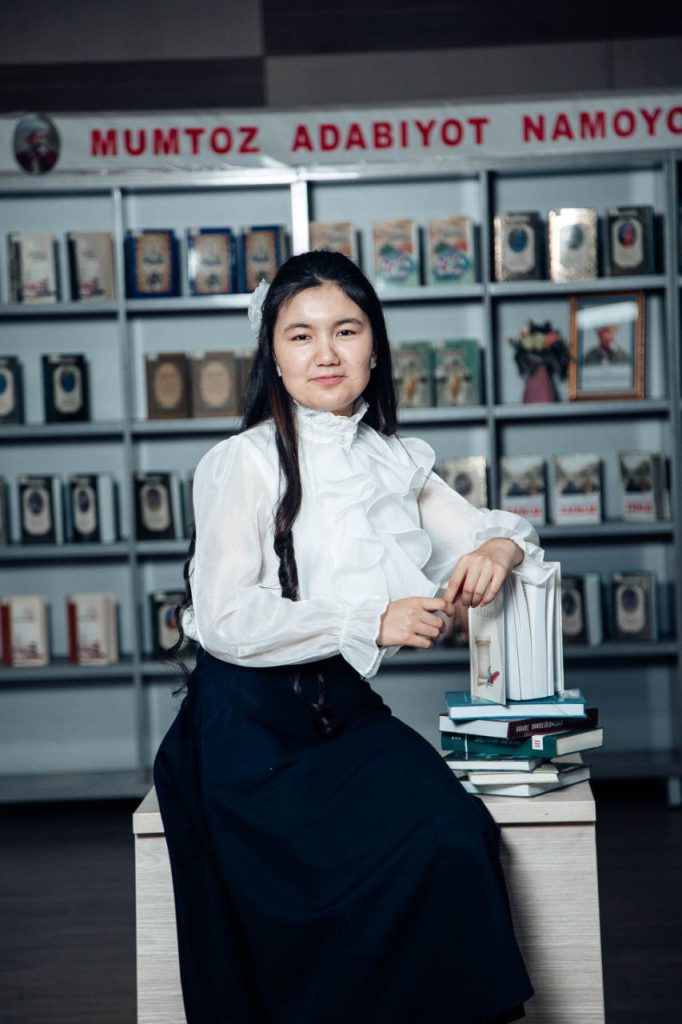THE PLACE AND HISTORICAL SIGNIFICANCE OF THE SHORT STORY IN TODAY’S LITERATURE
Kattakurgan State Pedagogical Institute
Faculty of Philology and Social Sciences
1st year student
of the Uzbek language and literature
Bakhtiyorova Zakro Farkhod qizi
Phone: (+998) 77 219 02 28
Abstract: The article analyzes the role and historical significance of the short story genre, one of the genres of fiction, in fiction today from a historical, literary and theoretical perspective. It sheds light on the formation and development of the short story genre, as well as its inextricable connection with religious, historical and educational sources. In particular, the role of the short story traditions in classical literature, including the work “Qissasi Rabguziy” in the development of the genre, is considered separately. The study substantiates the role of short stories in preserving historical memory, forming a moral and aesthetic ideal, and understanding national identity with the help of scientific evidence. It also analyzes the transformation of the short story genre in modern fiction, the processes of renewal in its compositional and methodological features.
Keywords: stories, historical, significance, contemporary fiction, spiritual nourishment, human qualities, linguistic theory, stories mentioned in the Holy Quran.
INTRODUCTION
Nowadays, for lovers of fiction, each work has its own unique charm and unique harmony of meaning. Such works, with their aesthetic richness and spiritual maturity, gently touch the heartstrings of the reader, give them a good mood, make them laugh, inspire them, teach them to look at life in a new way, to be loving to those around them. At the same time, with their underlying meaning, they lead to moral perfection. Most of such masterpieces are written in the short story genre. When did the short story genre originally appear? Who were the first to create in this genre? What is the purpose of writing short stories? What spiritual nourishment can be obtained from the short stories being written today? To find answers to such questions, we need to look at history.
The historical significance of short stories and their place in the present day are very important for us. A number of stories are narrated in the work of Nasuriddin Rabguziy, “The Story of Rabguziy” and in the Holy Quran. This study serves to shed light on the moral ideas in these stories and to reveal their intended purpose. In addition, it also conducts research on the language of the work from a linguistic perspective.
REVIEW OF USED LITERATURE
Over the past 5 years, especially in 2024-2025, the genre of the story has been actively studied in literary studies, new interpretations and methodological approaches are being developed. Azimov.A. cites the following information in his dissertation: Current Uzbek stories have been studied by many literary scholars. These include scientific studies such as S. Mamajonov’s “Uslub jilolari”, U. Normatov’s “Ufqlari nasrimiz”, A. Rasulov’s “Ardoqli adib”, H. Umurov’s “Kahramonning man’ami olam i epiclik” (The Spiritual World of the Hero and Epicism). The methodological basis of the work is theoretical works created on literary works, published works on the nature of the short story genre and the spiritual world of the creator. The work mainly uses descriptive analysis, and in some cases comparative analysis methods.
This scientific work examines the ideological and aesthetic assessment of contemporary Uzbek short stories, the study of the objective and subjective aspects of the characters in the stories, the portrayal of the characters’ psyche, the extent to which contemporary writers have been able to reflect life in a work of art, and the transformation of life’s conflicts from a social phenomenon into an artistic phenomenon based on contemporary Uzbek short stories.
Ulugbek Hamdam, in his article entitled “The Interpretation of Morality in the Poetics of the Story in Subconscious Experiences,” makes the following points: “When analyzing a work of art, we either do not see or cannot see the presence of the author’s personality along with the participating characters. In works of art, the image of the author is manifested in the style of narration, the language of the work, and the methods of depiction. In a word, the image of the author consists of his aesthetic perceptions, thinking, ideology, the objects depicted, and his vices, which are vividly expressed in the work.”
Annayev Davlat Ismatovich, a 1st-year master’s student in the field of literary studies and Uzbek literature at Termez State University, provides the following information in his article entitled “The uniqueness and genre composition of the work “Qissasi ar-Rabguziy”: The first writer in the history of Turkic literature to start creating stories from narratives and stories in prose was Nasuriddin Burhoniddin Rabguziy. Only the work “Qissasi Rabguziy” (1309-1310) has survived to us. The work was written by order of the Muslim Mongol bey Nasuriddin Toqboga. The book is written in Turkic, mainly in prose, with hymns, summaries of some stories, lyrical experiences and the final part in verse.
RESEARCH METHODOLOGY
It is known that the work “Qissasi Rab’guziy” is the first work in the genre of short stories written in prose. This work is very rich in spiritual terms, it covers a wide range of moral issues, and many stories mentioned in the Holy Quran are also given in this work, which both in history and today contribute to the education of the reader’s soul and the ability to control his soul, to distinguish between the lawful and the unlawful, and to reveal how bad envy is and that no human child can achieve salvation through it. The stories in the work, such as “Ibrahim alayhis-salamu wa Maa Namrud alayhil la’ana” about Abraham and the infidel king Namrud, “Ya’qub alayhis-salamu” about Jacob, who was an example of patience for all people, and “Yusuf Siddiq alayhis-salamu” about his son Joseph and his brothers who were always jealous of him, always serve as an example for us in terms of human qualities.
In addition, from the point of view of linguistics, a large part of this invaluable national heritage is attributed to V.V. Radlov, V. Thomsen, P.M. Melioransky, S.E. Malov, V.L. Kotvich, A. Fon, Gaben, G. Ramstedt, A.N. Kono
LIST OF REFERENCES USED:
1. Rabguziy, Nosuriddin Burhoniddin. “The Story of Rabguziy” (Editor N.A. Asilova; Foreword by E. Fozilov). K.I. – T.: Writer, 1999.-240p.: illustration)
Inv. In front of: Institute of Manuscripts named after H. Sulaymanov of the Academy of Sciences of the USSR.
2. Professor of Chirchik State Pedagogical University, Doctor of Pedagogical Sciences Ulugbek Hamdam: “Interpretation of morality in the poetics of the story in the subconscious experiences”, p. 23.
3. Jabborov E. Folklore: image and interpretation.-Karshi: Nasaf, 1999.
4. Hamdamov U. Loneliness.-Tashkent: Yangi asr avlod, 2019
5. Muhammadjon Xolbekov. Landscapes of 20th-century modern literature. A progressive interpretation of 20th-century modernist prose Source taken from www.kh-davron.uz. 2018.
6. Azimov.A. Dissertation for the degree of Master on the topic “Artistic features of modern Uzbek stories”. Andijan 2021. 5 pages.




